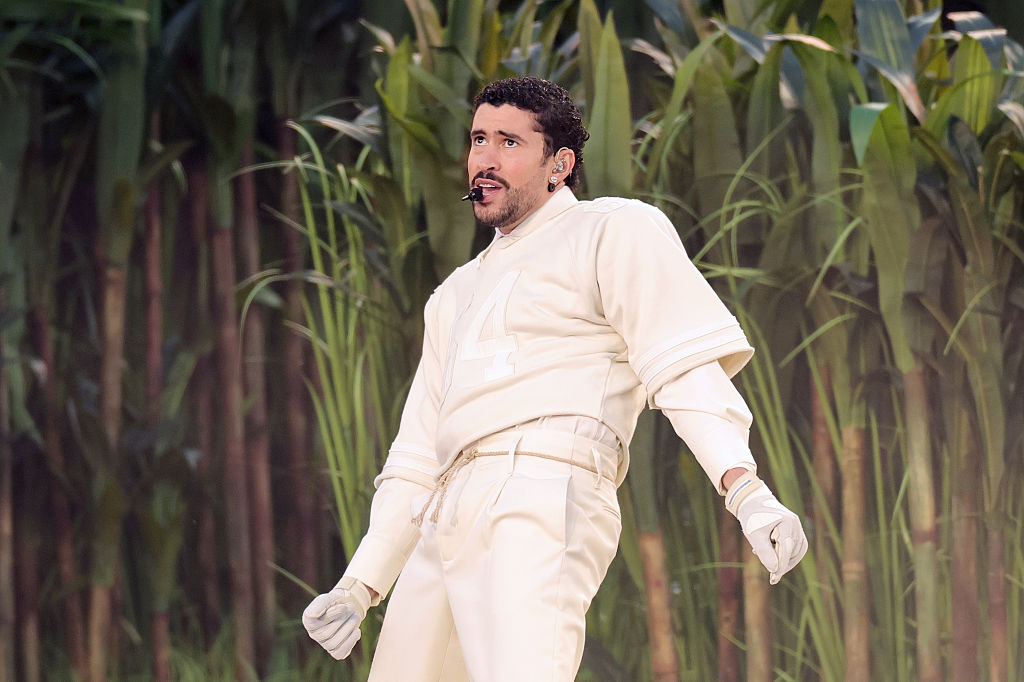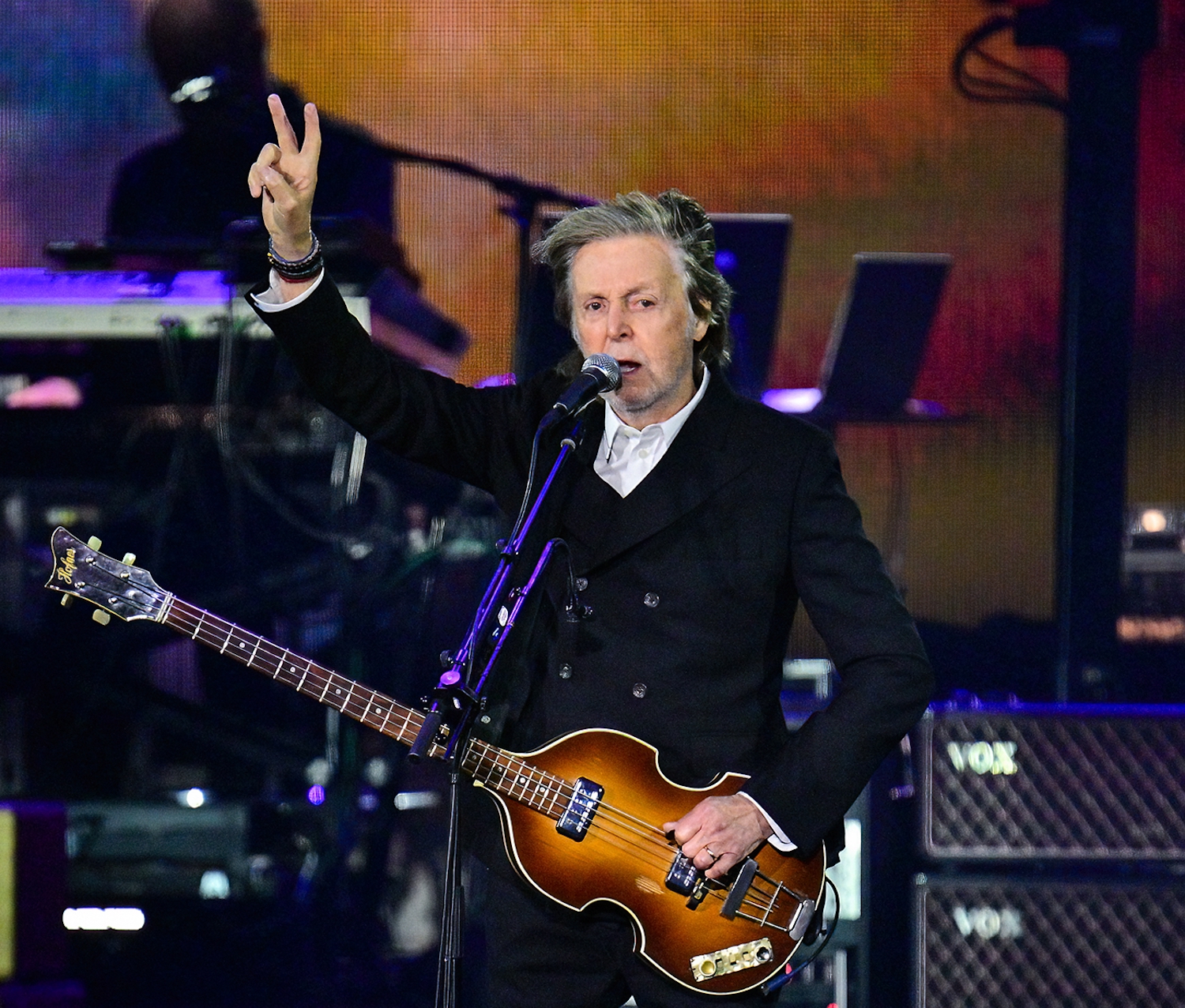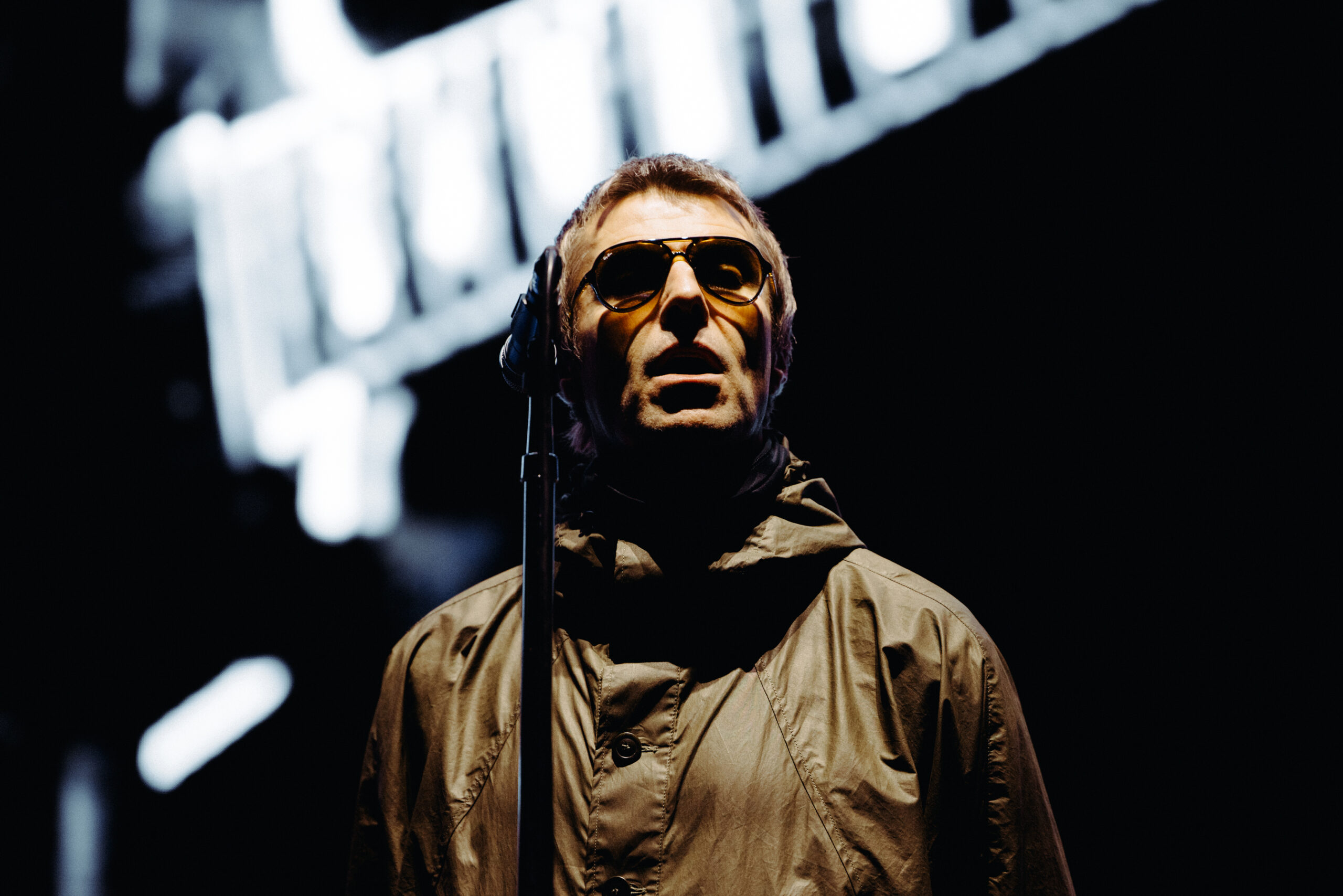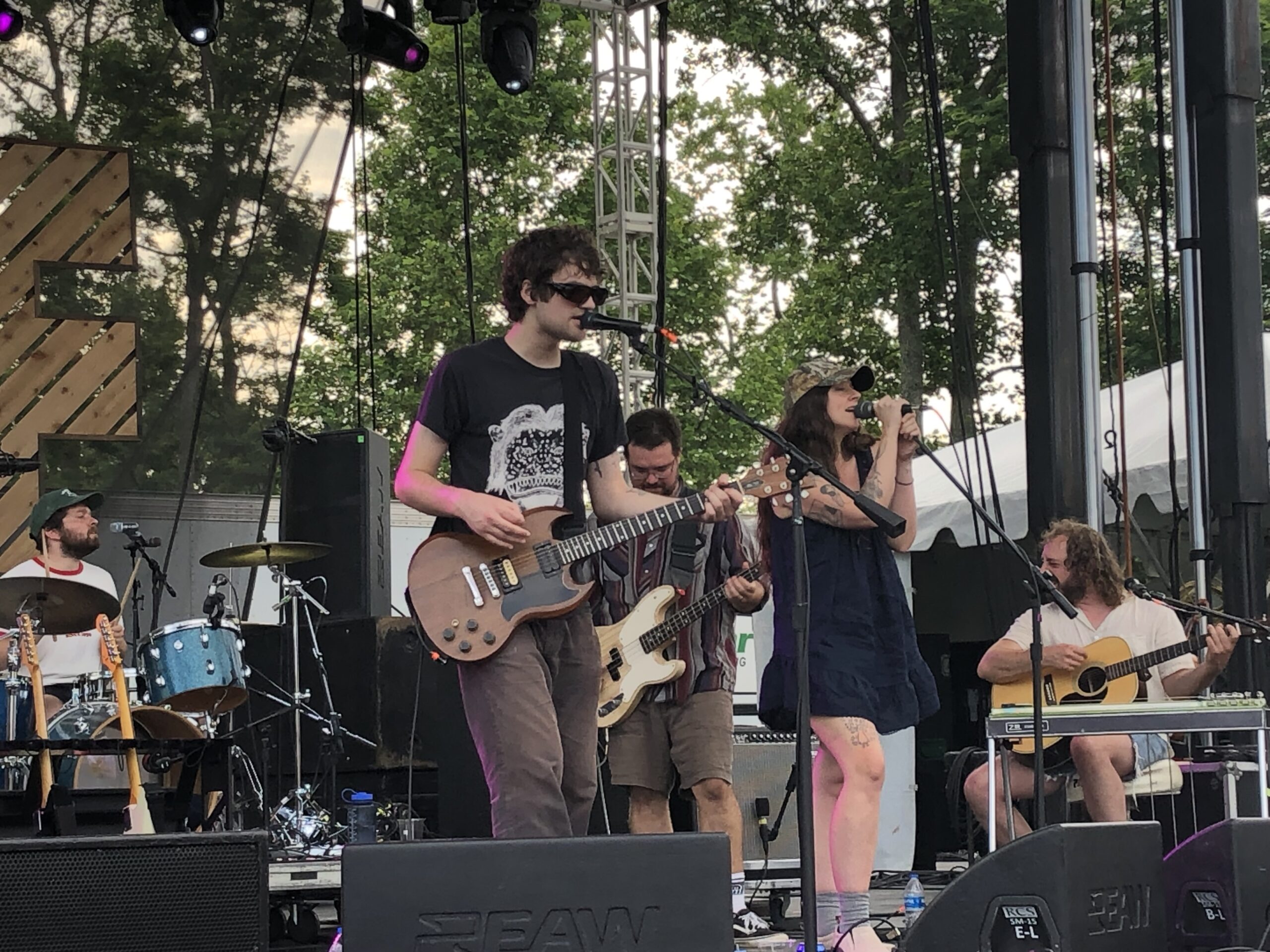At this point in her career, Julien Baker is too popular to be playing the smallest stage at Pitchfork Music Festival. But the smallest stage is also the most intimate stage, and intimacy is what Julien Baker traffics in. So there she was, walking onto the Blue Stage as Friday afternoon was giving way to evening, her slim, tatted-up arms extending from the sleeves of a Terror T-shirt. I'm told one goes to a Terror show expecting to get kicked in the brain. For those favorably disposed toward her spare, trembling, ambient balladry, a Julien Baker concert promises to put your heart through similar treatment.
On this drizzly Chicago summer day, the rending began with "Turn Out The Lights," the title track from the star-making album she put out last year. That release expanded the 22-year-old's profile such that she could easily have commanded a larger group's attention on one of the two main stages across Union Park. As it stands, several thousand crammed into a tree-filled corner of the festival to watch her sing about the dark, decaying apartment where "there's no one left between myself and me." Song after song, many of them joined her in beating back whatever darkness haunts them by howling along to lines such as "The harder I swim, the faster I sink!" and "Maybe it's all gonna turn out all right/ Oh, I know that it's not, but I have to believe that it is!" Quite a few more of them merely stood awestruck.
For the last three years, since the release of her remarkable debut Sprained Ankle, Baker has been touring relentlessly doing a version of this gig all over the world at shabby bars, ornate theaters, and outdoor festivals like this one. It goes like this: Baker, armed with an electric guitar and an arsenal of effects pedals, steps to the microphone and emotes with slow-building splendor, building from plaintive whispers to passionate wails. Behind her voice, guitar parts filtered through mounds of reverb and delay are looped and layered to create rising action. Not much else is involved; the songs are so delicate and naked that even the occasional addition of piano or violin constitutes a major dynamic uptick.
This low-key intensity does not always lend itself to a music festival environment, where noise from nearby stages regularly spills over into whatever sonic space a performer leaves empty. Friday, that meant booming bass and vigorous shouting from hometown hero Saba's performance on the Red Stage. At one point Baker told us, "I think that's Saba," and enthusiastically endorsed his recent album Care For Me. Noticing how fired-up Saba and his audience were getting, she continued, "I wish I could do that. I wish I could just be like, 'Make some noise!'" The crowd responded with vociferous cheers for a good solid minute.
That sort of reception was fitting, and not just because of what a rousing performance Baker was putting on. Even if it's true that her musical and personal aesthetic doesn't exactly jibe with rowdy demands for affirmation, all those nights on stage have helped her develop confidence as a performer worlds away from the wobbly, talented kid I beheld at a small Columbus bar three years ago. Maybe she's still the type to say, "I find it immensely flattering when large groups of people gather to watch me play. It's pretty neat." But these days she's also spiking her radical vulnerability with what almost passes for rock-star swagger. It manifests in small details like the way she lifts her guitar against her chin a song's climax, the satisfied way she bites her bottom lip in the wake of conjuring celestial drama, or the wild-eyed smile that breaks out when she sings, "I would have stayed if you asked me to."
Baker has evolved the campfire emo catharsis of Dashboard Confessional into post-rock worship music -- sometimes literally, as when she faces her life's many trials and mistakes and cries out, "I rejoice!" She grew up in church and continues to identify as a Christian, and the influence of modern evangelical music on her songwriting is unmissable, even when she's not so overtly praising the Lord. Her twist on the format is weightier than most because she's as real and raw about her pain and flaws as David penning a psalm. Her songs present not a Hallmark joy but one always fighting for its life in the face of loneliness, fear, depression, substance abuse, and creeping death. There is a passage of scripture in 2 Corinthians 4 about the role of suffering in a Christian's life. The band Jars Of Clay took their name from it, but foremost it reminds me of Baker's music. It reads like so: "For God, who said, 'Let light shine out of darkness,' made his light shine in our hearts to give us the light of the knowledge of God’s glory displayed in the face of Christ. But we have this treasure in jars of clay to show that this all-surpassing power is from God and not from us. We are hard pressed on every side, but not crushed; perplexed, but not in despair; persecuted, but not abandoned; struck down, but not destroyed. We always carry around in our body the death of Jesus, so that the life of Jesus may also be revealed in our body." The idea is that as the struggles of this world chip away at a person's exterior, it allows God's power to shine through from inside. I hear something like that in Baker's music. She steps onstage and cracks herself open along the fault lines left over from trauma, and something bright and powerful beams from among the wreckage. Her songs are barely there, faint glimmers that do not evoke physical shapes so much as spirits hovering in the air, whipped up time and again into clouds of glory. It's a cold and it's a broken hallelujah, and then suddenly it's a consuming fire. For 45 minutes Friday, Pitchfork Music Festival was engulfed.Julien Baker, Pitchfork Day 1. 🖤 #julienbaker @julienrbaker #p4kfest
A post shared by laura_rote (@laura_rote) on






